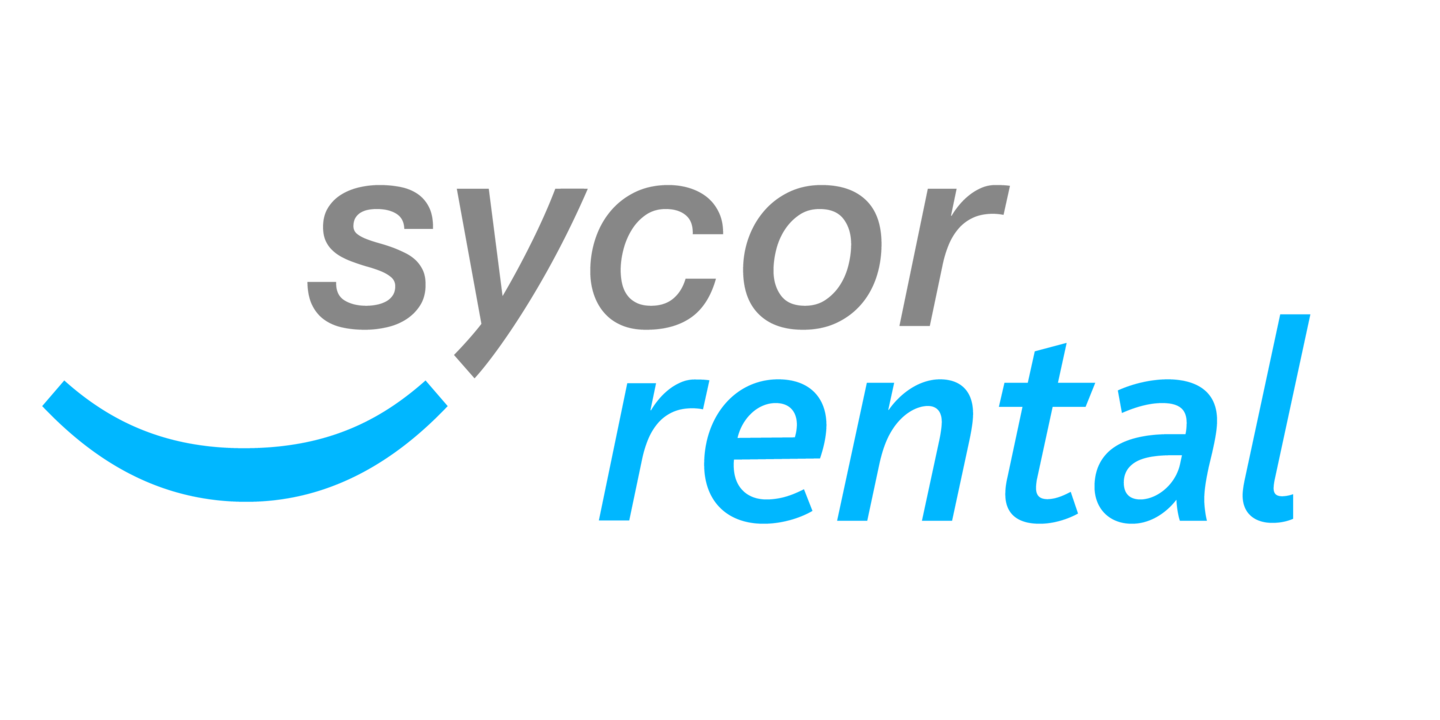
10 Steps to Launching Your Rental Startup Successfully
Sycor.Rental for the challenges rental businesses experience.
Starting a rental business is an exciting and complex undertaking that requires strategic planning. Every decision you make early on will shape your long-term success — from choosing the right niche to building systems that can scale. Investing in the right ERP solution is a key part of that foundation.
At Sycor Americas, we’ve seen firsthand what sets successful rental startups apart: they prioritize operational clarity and long-term scalability from the very beginning. That means combining an innovative business plan with the right technology, like our Sycor Equipment Rental ERP Software, to simplify operations, manage assets, and gain the real-time insights needed to grow.
In this guide, we’ll walk you through a 10-step short-term rental startup checklist explaining how to start a rental business, avoid costly pitfalls, and scale your company. *

*The Article Continues Below
Do you need help launching your rental startup?
Call us today at +1 877 487 9267 to learn how Sycor Americas can help you build a strong foundation for your rental business.
Or arrange a free, no-obligation consultation with one of our experts at your convenience, by submitting the form to the right -------------------------------------------->
* Step 1: Conduct Thorough Market Research
Before you invest in equipment or software, you must understand the market landscape. If you want to learn how to start a rental company the right way, conduct market research to lay the foundations of your enterprise. It helps you identify demand, what your competition is lacking, and potential gaps where your rental startup can stand out.
Analyze Your Market
Start by analyzing local and regional data of your niche sectors. Observe your competitors and find opportunities to provide added value to your target market. Areas like pricing models, service coverage, and customer reviews can pinpoint areas for differentiation. Before investing in construction equipment rental systems, reach out to potential customers to better understand their pain points and rental habits.
Develop Your Market Strategy
Your early research findings can help you develop a strategic business plan. For example, the information gathered can help you select inventory and formulate a unique pricing strategy. By understanding your market, you can avoid over-investing in the wrong assets and find your target market.
With your due diligence, Sycor Americas can help you translate gathered data into actionable insights. Our equipment rental software can help you gain market insights to further your business development.
Step 2: Define Your Niche and Business Model
Choosing a clear niche is one of the most important steps in starting an equipment rental business. Instead of renting everything to everyone, focus on a specific market where you can deliver the most value. This could include aerial platforms, tools, medical devices, or specialized event rentals.
Once you’ve narrowed things down to a specific market segment you want to serve, outline your business model. You don’t have to target an entire niche and can segment your market further. For instance, you may find a demand for short-term or long-term rentals that competitors don’t cater to. You could also focus on B2B clients, such as contractors and industrial firms, or opt to serve individual customers.
Defining these parameters early will help you create accurate pricing strategies. Use this information to allocate your inventory effectively and avoid overextending your resources.
Step 3: Create a Business Plan
A well-structured business plan is critical to any short-term rental startup checklist. It provides a clear roadmap for how to start a rental business and ensures that you stay focused as you launch and grow.
Your plan should include a detailed market analysis, financial projections, and a clear business model description. Based on your research in Step 1, be specific about how you target customers. Outline your marketing approach and the resources you’ll need to get started.
Most importantly, include realistic growth milestones in your business plan. As your business grows, your goals will change. These benchmarks will help you track progress and decide whether to secure additional funding. Whether you hit your goals or not, these metrics will help you adjust your strategy as the market evolves.
Step 4: Handle Legal Structure and Licensing
Before officially starting a rental business, you need to establish its legal foundations. Choosing a proper business structure, such as an LLC, corporation, or partnership, will affect your taxes, liability, and ability to raise capital.
Once your structure is in place, research the permits and licenses required in your state or municipality. Rental businesses in industries like heavy equipment or medical devices may have additional compliance requirements, so it’s important to understand all regulations upfront.
Additionally, protect your business from unexpected incidents with adequate insurance coverage. These cover your assets with general liability, property, and specialized rental coverage, safeguarding your business against unforeseen risks.
Step 5: Build Your Rental Inventory
With a business plan and all legalities set up, you can start building your inventory. Your inventory is the backbone of your equipment rental business, so making smart, strategic decisions from the beginning sets the tone for the rest of your launch. Begin by selecting high-demand equipment for your chosen niche, like heavy machinery, cranes, specialized tools, or event equipment.
Decide whether you’ll purchase or lease your initial inventory. Buying gives you full ownership and long-term value, while leasing can help reduce upfront costs and provide more flexibility. Either way, prioritize quality over quantity. Investing in durable, well-maintained assets will minimize downtime and repair expenses.
At this point, it’s also wise to establish a maintenance schedule early. A clear inspection and service process will extend the life of your equipment and ensure consistent customer reliability.
Step 6: Set Up Technology and Management Systems
Efficient technology can transform a rental startup from a manual operation into a scalable business. As part of your short-term rental startup checklist, implementing the right systems early will reduce errors and give you data-driven insights to make informed decisions.
Sycor Equipment Rental ERP Software is fully integrated with Microsoft Dynamics 365, allowing you to manage your entire operation on one platform. Leverage features like asset tracking, inventory management, invoicing, and financial reporting. It provides you with real-time data at your fingertips while eliminating duplicate work.
Reach out to our experts to learn more.
Step 7: Develop a Marketing Strategy
The next step is to create a clear plan to reach your target customers. Build a professional website that showcases your inventory and explains your value. Optimize it for search so potential clients researching how to start a rental company or looking for equipment in your niche can easily find you.
Leverage digital marketing tactics such as paid ads, email campaigns, and social media to generate leads. Encourage customer reviews to build trust and credibility. Use A/B testing to experiment with messaging, landing pages, and ad formats, then fine-tune your strategy based on the results to continuously improve performance and maximize ROI.
Step 8: Build a Strong Operations Framework
As you build brand awareness and gather a following, you must establish a well-defined operations framework to keep your rental business running smoothly. As part of your short-term rental startup checklist, develop clear policies for pricing, deposits, equipment returns, and maintenance scheduling. These standard processes prevent unseen costs, such as billing errors or missed inspections. Train your employees in these processes as you scale.
Step 9: Manage Finances and Cash Flow
Your cash flow is your enterprise's lifeblood; unfortunately, 82% of startups fail due to mismanaged finances. Sycor Americas provides solutions that help you effectively manage income, expenses, and rental utilization rates. We equip your organization with tools to monitor key metrics like operating costs and profit margins to ensure your pricing model supports growth.
Step 10: Scale Your Rental Startup
Once your rental business is running, it’s time to focus on growth. Scaling your equipment rental business requires more than just adding inventory. You need to expand strategically, looking for avenues of growth.
Always look for opportunities to enter new markets and add complementary rental categories to your portfolio. For example, you can delight existing customers by offering value-added services like delivery or on-site support. Use the data from your existing operations to identify what’s working and where you can improve.
Take the First Step Toward a Successful Rental Startup
Launching a successful rental startup takes planning, focus, and the right tools. This short-term rental startup checklist teaches you how to start a rental business and position yourself for long-term growth. Every step you take today builds the foundation for tomorrow’s success.
Your Rental Specialist Contact
If you need help launching smarter and scaling faster, call Sycor Americas at +1-877-487-9267 or request a quote online.
Our specialists will gladly answer your questions.

Our partners
All partners



